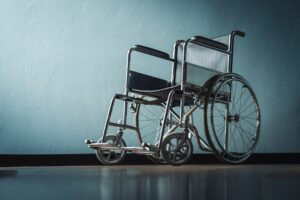PENNSYLVANIA WORKERS’ COMPENSATION
CASE SUMMARIES
11/1/2024 – 11/30/2024
OCCUPATIONAL DISEASE – FIREFIGHTER PRESUMPTION
Borough Of Hollidaysburg v. Paul Detwiler (WCAB)
Commonwealth Court of Pennsylvania – Published Opinion
Decided: November 19, 2024
Issues:
Whether the Claimant provided timely notice of his occupational disease and filed a timely Claim Petition? Whether the Claimant failed to meet his burden to show a causal link between his cancer and a Group 1 carcinogen?
Background:
On December 27, 2019, Claimant filed a Claim Petition seeking benefits for occupational disease pursuant to Section 108(r) of the Workers’ Compensation Act (Act). The Claim Petition alleged that Claimant was diagnosed with chronic myeloid leukemia (CML) caused by his exposure to carcinogens categorized by the International Agency for Research on Cancer (IARC) as Group 1 carcinogens while working as a volunteer firefighter.
Holding:
The WCJ did not err in finding that Claimant acted with reasonable diligence or that he provided the Borough with timely notice of his occupational disease. To the extent the Borough argues that Claimant failed to act when he first became aware of Act 46’s existence, this Court has previously rejected such arguments. The Borough’s argument amounts to nothing more than a challenge to the WCJ’s credibility determinations. The WCJ credited Claimant’s testimony that although he knew of his CML diagnosis in 2014, he did not relate it to firefighting at that time. The WCJ further found Claimant credible when he testified that within a month or so of attending the Act 46 training, Claimant contacted counsel and received paperwork to make his claim. Thereafter, Claimant provided notice to Employer, and signed a fee agreement with counsel. Claimant acted with reasonable diligence when he notified the Borough of his claim shortly after attending the Act 46 training and making contact with his attorney. As for timeliness of the claim, the Claimant filed his Claim Petition on December 27, 2019—well within the 300-week period required to receive the presumptions. As for causation, the evidence credited by the WCJ, shows Claimant carried his burden to establish direct exposure. The witnesses testified that Claimant was present at calls where fire and smoke were present during his service with Phoenix and that he fought “brush fires, dumpster fires, house fires, just every type of fire. Further, Claimant’s expert’s opinion substantially supported a connection between exposure to fire, smoke and exposure to a Group 1 carcinogen. Section 301(f) does not require claimants to prove that workplace exposure actually caused their cancer or that their direct exposure was to some particular Group 1 carcinogen. The Supreme Court reversed this Court’s “add[ition of] a workplace-exposure requirement that the General Assembly chose not to impose upon claimants.” The WCJ properly concluded that Claimant met his burden under Section 108(r) of the Act to establish a causal link between his CML and a Group 1 carcinogen and satisfied the elements necessary to invoke the presumption of compensability in Section 301(f) of the Act. A reversal would necessarily require a lack of deference to factual findings by the WCJ. Accordingly, the order of the Board was affirmed.
Affirmed.
DISSENTING OPINION BY SENIOR JUDGE LEAVITT
The dissent would reverse because Claimant’s evidence about his work as a volunteer firefighter did not prove four years of continuous firefighting duties that exposed him to benzene at levels sufficient to cause CML, he was not entitled to use the presumption provided in Section 301(f) of the Act.

BURDEN OF PROOF – VARIOUS PETITIONS
JUDICIAL DISCRETION
Tina Butterfield v. Hallmark Marketing Corp. (WCAB)
Commonwealth Court of Pennsylvania – Unpublished Memorandum Opinion
Decided: November 20, 2024
Issues:
Whether the WCJ’s decision as to the Termination, Reinstatement, and Penalty Petitions, was supported by substantial competent evidence?
Background:
Claimant was injured during the course and scope of her employment as a machine operator with Employer. Employer filed a Termination Petition alleging that Claimant had fully recovered as of March 10, 2022. Thereafter, Claimant filed a Reinstatement Petition seeking to reinstate her indemnity benefits as of September 1, 2022, based upon the fact that she was terminated due to her inability to perform her work duties because of the work accident. On October 3, 2022, Claimant filed a Penalty Petition alleging that Employer refused to pay for certain medical treatment allegedly related to her work injury. The WCJ granted the Termination Petition and denied the Reinstatement and Penalty Petitions. The Board affirmed.
Holding:
The Claimant’s attack on the WCJ’s findings was an attack on the credibility findings. This Court will not disturb a WCJ’s findings if there is substantial evidence in the record to support the findings. It is irrelevant whether the record contains evidence to support findings other than those made by the WCJ; the critical inquiry is whether there is evidence to support the findings actually made. The Claimant’s argument that the WCJ erred in denying her Reinstatement Petition was without merit. Claimant filed a Reinstatement Petition seeking to reinstate her indemnity benefits based upon the fact that she was terminated due to her inability to perform her work duties as a result of the work accident. Claimant returned to full-duty work for Employer without restrictions and was subsequently terminated for quality control reasons that were totally unrelated to the work injury. Thus, any wage loss after that date was not related to the work injury. As for the penalty, Claimant bore the burden of proving a violation of the Act or its rules or regulations that appears on the face of the record and she failed to introduce credible evidence supporting that allegation. The WCJ accepted that the diagnosis of a work-related radiculopathy and disc conditions were degenerative in nature and not work-related. Thus, Claimant failed to prove that Employer failed to pay any bills causally related to her work injury.
Affirmed.
MEDICARE LIENS
THE CLAIMANT STILL HAS TO PROVE A PENALTY
Dura-Bond Coating, Inc, v. Ryan Marshall, et al. (WCAB)
Commonwealth Court of Pennsylvania – Published Opinion
Decided: November 18, 2024
Issue:
Whether the Board erred by concluding that Employers are obligated to reimburse DHS’s Lien despite that Claimant’s claim is compensable and the medical service providers never submitted the required billing forms and medical reports to Employers as required for payment under the Act and the MCCR?
Background:
The WCJ granted Claimant’s Claim Petition for WC Benefits, deemed Dura-Bond and PI&I Claimant’s statutory employers, and ordered Dura-Bond to pay the full amount of WC benefits with entitlement to indemnification from PI&I. Dura-Bond paid DHS’s lien for bills DHS had paid on Claimant’s behalf to that point. In a review petition, the Employers alleged that Claimant failed to ensure that providers billed his treatment expenses to Employers pursuant to Section 306(f.1) of the Act. The WCJ granted the Review Petition, having found that the providers and DHS were or should have been aware that Employers were liable for Claimant’s medical bills, but nevertheless bypassed Employers and continued to bill DHS. The WCJ acknowledged Employers’ statutorily imposed obligation to repay the DHS Lien pursuant to Section 1409 of the FACA, but the WCJ concluded that Employers are not obligated to reimburse the Lien unless and until the bills in question are submitted to them for review, payment, denial, and/or utilization review in accordance with the Act. The Board reversed, concluding that Employers were responsible for paying the DHS Lien.
Holding:
Without supporting authority, the Board essentially interpreted that the FACA supersedes the Act and declared that since DHS already paid Claimant’s providers, Employers cannot now challenge causality or reasonableness or necessity of the medical services for which DHS paid. Under Section 306(f.1) of the Act and the related MCCR, an employer’s/insurer’s legal liability to pay for a claimant’s medical treatments is triggered only when the employer/insurer receives the proper billing forms and related medical records. Reading the FACA and the Act together, an employer/insurer is responsible for reimbursing a DHS lien, but only when it receives the proper billing forms and related medical reports. Traditional canons of statutory interpretation and sound public policy as expressed in both the FACA and the Act support interpreting the Act and the FACA in that manner. Employers’ obligation to pay for Claimant’s work injury-related medical treatments and, thus, those costs in the DHS Lien, is not triggered until Employers receive proper billing reports and medical records from the treating providers to confirm causality and the reasonableness and necessity for Claimant’s underlying treatments. DHS has paid Claimant’s providers for all his medical treatments, notwithstanding whether they were for his work injury. Having been paid, the providers now have no incentive to submit proper billing and medical reports to Employers. Moreover, DHS is not a party to, and has not participated in, this litigation.
REVERSED, and the matter is REMANDED.

IMPAIRMENT RATING EVALUATIONS
Kenneth Elliott v. City of Pittsburgh (WCAB)
Commonwealth Court of Pennsylvania – Unpublished Memorandum Decision
Decided: November 14, 2024
Issue:
Whether Act 111 and this Court’s cases upholding its credit provisions have sub silentio, thus impermissibly, overruled Protz II?
Background:
Claimant sustained a disabling work-related injury on August 25, 2003. In December 2012, he underwent his first IRE, which returned an impairment rating of nine percent, after which his status was modified in March 2014 to TPD as of the December 2012 IRE. He did not appeal that determination, which limited him to 500 weeks of TPD benefits. After Protz II, in April 2021, before Claimant’s 500 weeks of TPD benefits elapsed, he filed a reinstatement petition seeking to restore his TTD status as of the December 2012 IRE date pursuant to Protz II. The WCJ granted the petition, but because Claimant had not previously appealed the constitutionality of the initial IRE, the WCJ restored Claimant’s TTD status only as of his April 2021 petition date. Claimant appealed to the Board, which affirmed, and then to the Commonwealth Court, which also affirmed. On September 8, 2021, Claimant underwent a second IRE pursuant to Act 111. The IRE returned an impairment rating of eight percent; subsequently, the WCJ granted Employer’s modification petition, which returned Claimant from TTD status to TPD status as of the September 2021 IRE. Claimant appealed to the Board, challenging the constitutionality of Act 111’s credit provisions; the Board affirmed, as did the Commonwealth Court. Claimant filed the instant reinstatement petition on March 21, 2022, again challenging the constitutionality of Act 111’s credit provisions on different grounds.
Holding:
The void ab initio doctrine is no longer the automatic or recognized approach for application of a judicial decision finding a statute invalid and that only claimants whose IREs were being litigated or appealed on the basis of non-delegation at the time Protz II was issued in June 2017 were eligible for TTD restoration as of their pre-Protz IRE dates. Further, claimants do retain “a certain right to benefits until such time as [they are] found to be ineligible for them,” although they “do not acquire a vested right in total disability status at any given time because that status has always been subject to potential litigation by employers.” Therefore, Claimant’s arguments in the appeal were deemed meritless.
Affirmed.
Deborah Reber v. R.E. Shenker/Little Lexington Farms (WCAB)
Commonwealth Court of Pennsylvania – Unpublished Memorandum Opinion
Decided: October 30, 2024
Issues:
Whether the WCJ made improper findings regarding the competency of Dr. Jurenovich, the IRE evaluator when that opinion was challenged as being inconsistent with the AMA Guides, [Sixth] Edition, second printing?
Background:
Claimant sustained a work-related head injury while employed as a horse trainer for Employer. In 2021, an IRE was performed by Michael Jurenovich, D.O., at the request of Employer. Dr. Jurenovich performed the IRE pursuant to Act 111, which yielded a whole-person impairment rating of 32%. On May 18, 2021, Employer filed a Modification Petition, seeking to modify Claimant’s benefits from temporary to partial disability based on the IRE. Although Dr. Jurenovich’s practice does not include direct treatment of traumatic brain injuries, he has experience in treating patients with that injury since traumatic brain injuries often accompany traumatic orthopedic injuries, which he treats as part of his practice. In advance of his examination of Claimant, Dr. Jurenovich was provided with copies of Claimant’s voluminous medical records, which he reviewed in preparation for the exam. During the IRE, Claimant reported difficulties with activities of daily living including balance issues, memory loss, depression, anxiety, and irritability, as well as taking several anti-psychotic medications. The WCJ granted the Modification Petition. The Board affirmed.
Holding:
Any failure of a medical expert to apply pertinent guidelines affects the credibility of such a witness rather than his competency. The WCJ’s decision to credit Dr. Jurenovich’s opinions were supported by substantial evidence. The WCJ identified the basis for his determination that the testimony of Dr. Jurenovich was credible. The WCJ noted that Dr. Jurenovich performed an examination, reviewed voluminous records, and documented the basis for his opinions and reports. He further noted that Dr. Jurenovich came across as both candid and confident. Although the WCJ acknowledged that Dr. Jurenovich made some concessions on cross-examination, he maintained his position as expressed on direct examination. The WCJ found that overall, Dr. Jurenovich’s testimony as a whole was credible and convincing and established a 32% impairment rating as of May 10, 2021, sustaining Employer’s burden of proof. The WCJ, as the ultimate factfinder in workers’ compensation cases, has exclusive province over questions of credibility and evidentiary weight. The WCJ’s decision to credit Dr. Jurenovich over Claimant’s expert was supported by substantial evidence, thus Claimant’s argument is without merit. She also offered no evidence to contradict Employer’s expert’s testimony that he did not find objective signs of a brain injury on the day of the IRE. The WCJ was the final arbiter of fact in this case, and he found the testimony of Dr. Jurenovich to be credible and persuasive and that it established a valid impairment rating of 32% under the AMA Guides. Claimant failed to present her own expert testimony from which the WCJ could have determined that Dr. Jurenovich’s opinions were speculative and arbitrary. That failure does not render the AMA Guides unconstitutional.
Affirmed.

SPECIFIC LOSS BENEFITS
CLAIMANT DIED DURING THE TTD CLAIM LITIGATION
Elmer Riehl v. Beiler Brothers (WCAB)
Commonwealth Court of Pennsylvania – Published Opinion
Decided: November 18, 2024
Issue:
Whether Section 410 of the Act should apply to allow a widow to receive Claimant’s specific loss benefits regardless of the timing and the cause of his death?
Background:
Claimant sustained a disabling work-related injury in October 2011. The injury was ultimately described as incomplete tetraplegia with depression and anxiety resulting from the October 2011 incident. In June 2020, Claimant filed a petition to convert his TTD to specific loss benefits, which are available when a claimant permanently loses the use of a body part. In November 2020, the WCJ dismissed the petition without prejudice to be refiled in the Board’s original jurisdiction, which Claimant did later that month. In August 2021, the Board referred the matter to the WCJ to produce findings of fact; the matter would then return to the Board, which retained jurisdiction. During the litigation, Claimant passed away in November 2021 from sepsis resulting from bedsores that developed from his work-related tetraplegia. Both doctors opined that Claimant’s death was due to his work-related injuries. Adopting the WCJ’s findings of fact, the Board stated that if Claimant had not died while his petition was being litigated, it would “likely” have awarded conversion of his TTD to 1,640 weeks of specific loss benefits. However, the Board concluded that Claimant’s petition became moot when he passed away because his death was due to his work injuries and Section 306(g) of the Act bars specific loss benefits for a surviving dependent in that circumstance.
Holding:
Claimant’s death from his work injuries occurred more than 300 weeks after his initial injuries occurred. Although Claimant’s widow would otherwise be eligible for fatal claim benefits based on Claimant’s death from his work injuries, she is, as noted, presumably barred from receiving them because Claimant’s death occurred more than 300 weeks after the incident that caused his injuries. The straightforward operation of Sections 306(g), 307, and 301(c)(1) would leave Claimant’s widow, a surviving dependent, with no remedy at all. Although the Claimant did not present a Section 410 claim to the Board, Section 410 is mandatory and not waivable. Section 410 applies only in very narrow circumstances where a claimant has a claim for compensation pending at the time of death that ultimately prevails. If Section 410’s elements are met, “the amount of compensation due” relates back to the time of the filing of the claim or petition and does not take the ultimate cause of death into consideration. When Section 410 applies because claim litigation is pending when the claimant dies, Sections 306(g) and Section 307 still apply and work with Section 410 to ensure the heritability of some form of benefits that the claimant sought but had not yet received prior to death. However, there must be an eligible surviving dependent to receive the benefits because to award them to an estate would conflict with Sections 306(g)(7) and 307(7). The Board’s order denying Claimant’s petition to convert claimant’s benefits from TTD to specific loss as moot was vacated. The matter was remanded to the Board.
Vacated and Remanded.

PETITION FOR ALLOWANCE OF APPEAL FROM THE ORDER OF THE COMMONWEALTH COURT – GRANTED
George B. Thomas v. Sysco Foods (WCAB)
Supreme Court of Pennsylvania.
November 5, 2024
The Petition for Allowance of Appeal was granted, limited to the issue set forth below. Allocatur was denied as to all remaining issues. The issue, as stated by petitioner, is:
Where the injured worker was a long-term member of a union with significant seniority subject to a collective bargaining agreement, should this Court limit Rosenberg v. Workers’ Compensation Appeal Board (Pike County), 942 A.2d 245 (Pa. Cmwlth. 2008), revising the lower court’s policy of shifting a burden that statutorily resides with the employer to prove all of the elements of a modification petition onto the disadvantaged injured worker to establish the existence of job vacancies within the employer’s workforce he or she would have to discover and prove vocationally qualified, contrary to the mandatory language of Section 306(b)(2) of the Workers’ Compensation Act, 77 P.S. 512(b)?
George B. Thomas v. Sysco Foods (WCAB)
Supreme Court of Pennsylvania.
November 5, 2024
Should an employer, which contacts directly and requests and conducts a mental health examination of an injured worker ex parte and fails to notify the worker’s counsel of record of the requested examination, be barred from utilizing the examination to alter the worker’s benefits given:
a. Section 314 of the Workers’ Compensation Act prohibits counsel from attending a medical examination of his client despite pending ongoing adversarial litigation in violation [of] his client’s constitutional right to counsel, and
b. The Court and Appeal Board’s condoning of these ex parte violations without any consequence, severely undermines the remedial and humanitarian purposes of the Act, and may, in effect, encourage it?
PENNSYLVANIA LEGISLATIVE REVIEW
As of November 2024, the Senate L&I Committee is still reviewing this House Bill and it has not sent it back to the Senate for review, alteration, or consideration.
Regular Session 2023-2024
House Bill 930
Short Title: An Act amending the act of June 2, 1915 (P.L.736, No.338), known as the Workers’ Compensation Act, in liability and compensation, further providing for schedule of compensation. Expanding Workers’ Compensation for Permanent Disfigurement
Subject: Expanding Workers’ Compensation for Permanent Disfigurement
This bill seeks to extend existing workers’ compensation eligibility for permanent disfigurement from 275 weeks to 400 weeks and clarify that Claimants are not precluded from collecting both total or partial disability benefits and disfigurement benefits simultaneously. It would also provide workers’ compensation coverage for disfigurement regardless of where it occurs on their body.
Last Action: Referred to LABOR AND INDUSTRY, May 9, 2023 [Senate]

NEW JERSEY WORKERS’ COMPENSATION
CASE SUMMARIES
11/01/2024 – 11/30/2024
WORKERS’ COMPENSATION COVERAGE
Amato v. Twp. Of Ocean Sch. Dist.
Superior Court of New Jersey, Appellate Division – Unpublished Opinion
NO. A-2542-23, A-2543-23; 2024 WL 4875157
Decided: 11/25/2024
Background:
Decedent was a teacher who died from COVID-19 after she returned to work when her school reopened. Petitioner filed a dependency claim alleging decedent suffered an occupational disease and died as a result of the exposure. Petitioner moved for an order that decedent was an essential employee under N.J.S.A. 34:15-31.11 and .12. Respondent moved to recuse the assigned Judge as she sponsored the bill. The Judge was a member of the New Jersey Assembly and was one of eight sponsors of the bill. “The bill amended the workers’ compensation statute to create a rebuttable presumption that an essential employee’s contraction of COVID-19 during the state of emergency was work-related.” The trial judge denied the recusal motion.
Holding:
Court held that a compensation judge who formerly sponsored a bill enacted into law is not per se disqualified from presiding over cases implicating or interpreting that law. The judge’s personal knowledge of legislative history does not necessarily render the judge biased or unable to make a fair judgement in the matter. Court found that the judge in this case did not abuse her discretion in denying the recusal as her knowledge in this case was judicial knowledge which many judges have. Court was not persuaded by Respondent’s argument that the judge could be called as a witness. The trial judge was correct in finding that decedent was an essential employee. Court also noted that the presumption under N.J.S.A. 34:15-31.12 is that the contraction of COVID-19 by an essential employee is rebuttable.
Affirmed.
NEW JERSEY LEGISLATIVE UPDATE
Assembly Bill 4371/S1943
Requires workers’ compensation, PIP, and health insurance coverage for the medical use of cannabis under certain circumstances.
Last Action: May 16, 2024 – Introduced, Referred to Assembly Financial Institutions and Insurance Committee
Assembly Bill 4283
Provides personal liability for owner, executive officer, or executive director of employer for failure to pay for workers’ compensation coverage.
Last Action: May 6, 2024 – Introduced, Referred to Assembly Labor Committee
Assembly Bill 4559
Concerns certain workers’ compensation supplemental benefits and funding method.
Last Action: June 13, 2024 – Introduced, Referred to Assembly Labor Committee
Assembly Bill 4750
Expands certain employer reporting requirements to include entities that employ or contract with individuals for financial compensation, including ridesharing and delivery technology platforms.
Last Action: October 10, 2024 – Introduced, Reported out of Assembly Committee, 2nd Reading
Assembly Bill 2100
Provides workers’ compensation benefits for certain public safety workers who developed illness or injury as result of responding to September 11, 2001 terrorist attacks.
Last Action: September 19, 2024 – Reported out of Asm. Comm. With Amendments, and referred to Assembly Public Safety and Preparedness Committee
Senate Bill 3772
Concerns valuation of board and lodging with respect to workers’ compensation.
Last Action: October 10, 2024 – Introduced in the Senate, Referred to Senate Labor Committee

